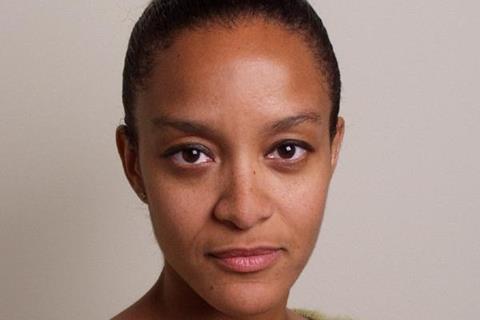
After 25 years of working in international film PR, I need to take on the uncomfortable and painful work of sharing my thoughts on the lack of diversity in our industry.
I have been driven to do this in response to Screen International’s feature back in September 2022 called ‘Powerhouse PRs: International arthouse specialists on how film festivals are changing’ and the lack of diversity reflected in the piece. There was not a single Black person featured because no Black PR has been the lead on the campaign for a film in the major sections of the Venice, Berlin and Cannes film festivals in the last two years. Probably longer.
There may be plenty of conversations on the subject but rarely do we pick apart the reasons why there are so few Black people in positions of power in the international film PR sector – and use tangible examples to understand why.
I know why I can’t be included on that list. It’s because despite 25 years working in this sector – 14 of which while based in the UK – as a Black woman, I had hit a glass ceiling. My career has not had a straight ascendance, which is the usual metric that qualifies advancement and success. The marginalised have to operate via alternative methods and work very hard just to exist on the sidelines. That isn’t deemed as valuable or legitimate as those who have the privilege of not having to do such machinations.
From the US to the UK
Originally from Los Angeles, my publicity career started in personal PR at Susan Geller & Associates, but my interest in international film landed me at DDA, where I spent nearly 10 years working out of the LA and London offices and left as VP of international publicity. From there I went to Paramount Pictures where I held the same title and subsequently went on to roles at Romley Davies Publicity, Lionsgate UK, in-house at the Tribeca Festival and Sundance Film Festival, and most recently I was PR manager, BFI Festivals, working across the BFI London Film Festival and BFI Flare: London LGBTQIA+ Film Festival.
With agencies and on my own as a freelancer, I have represented films at festivals such as Berlin, Cannes, San Sebastian, Venice, Toronto, London, Sundance, SXSW and Tribeca among others.
Over the years I have been called racial epithets, have endured racially-motivated bullying and harassment, abusive behaviour and public humiliation in front of colleagues and press. I have had colleagues make biased and disrespectful comments about Black people/Black press to my face and never be held accountable. This has been at the same time as having the pleasure of working with some of the best PR professionals and human beings in our business.
I am only one person, but my experiences are true. These observations are not based on a bit of progress that has happened in the past couple of years – I know there are publicists hired at more junior levels at some of these agencies now who are Black – but on my experience of being a Black publicist of a certain age working in international arthouse film PR at film festivals.
I have had to have a very strong demeanour on the outside to mask the pain, anxiety and rage on the inside.
Despite working with the some of the best executives, filmmakers and talent in the business I have not been afforded the opportunity to have the kind of mentorship and support from my bosses or colleagues that would have allowed me to have a real seat at the table.
And as I have not been accepted into the cliques that exist in the larger agencies, or taken under the wing of someone powerful, I have not been able to visibly excel in the same way my colleagues have. I have built a great reputation based on my skills and work ethic but even in a fantastic role of substance and with great promise, I hit a ceiling and was not able to ascend any higher. I languished.
I have been resigned to a journey of numerous fixed-term and freelance roles and ones where I don’t seem to be progressing. If I was ever asked who mentored me or helped pave the way to where I am today, I would not be able to answer. Instead I have the memories of the micro and macro aggressions I have had to transcend just to keep working in the job I love.
I have never got back to where I was at my highest point. I have not been given further big opportunities. Others have excelled around me.
Complacency is sinister
I can count on one hand the people who consistently hire me as a freelancer, giving me the opportunity to make a living for myself in professional environments where I am not subjected to biased and, in some situations, racist behaviours and language. Because that still exists, even post-2020. Colleagues who exhibit these behaviours are never held accountable and no one learns the lessons. They turn away and look in another direction. Complacency is far more sinister than someone’s ugly actions or words and the gaslighting I have been subjected to is constant.
Black professionals are severely underrepresented in executive decision-making roles and this means we are often the last in and the first out. We have much less room for failure than our white counterparts do. We have to navigate a system that is not set up to support us.
Discrimination of this kind is commonplace and Black women in particular face heightened challenges. We are more likely to face isolation as an ‘only’ and more likely to lack role models in leadership who share our identity. We have to work harder than white counterparts for less recognition. We often try not to take up too much space and speak only when we have something important to say.
Sweeping change
So how can we examine inequalities, dismantle biases, mentor the next generation and look for ways to make our business more inclusive?
Increasing the amount of racial diversity is no small task and it will likely take sweeping, industry-wide changes to increase the representation of Black professionals in the film industry. The unique characteristics of the industry make achieving equity a complex challenge. Strong accountability structures and transparency are often lacking when they need to be increased. Overcoming the hidden barriers and cosy, tight-knit networks that still dominate the landscape will require sustained collaboration among many different colleagues (sales agents, producers, other PRs, distributors).
Real and lasting change will not take place overnight, but what could begin to increase diversity and shift representation would be for more companies to aspire to achieve more non-white representation across all levels and roles, from assistants to the boardroom, and to find ways to hold themselves accountable.
Another important step would be to make clear to all employees and key partners what inclusive behaviour looks like. Even those who have gone through anti-racist training are unaware of or complacent towards harmful behaviours in which they are still participating.
Not remaining silent
Writing this is not about criticism but about not remaining silent. We cannot make any progress if we can’t trust and respect each other enough to have difficult conversations. There has to be accountability in going forward, as without it, we can’t change the situation for the better. Bringing the next generation of PRs into a space where they could be exposed to harm is not the answer.
Having to fight for what others typically don’t have to or needing to advocate on their own for greater racial equity is an unfair burden that often falls almost entirely on Black professionals. The frustration and exhaustion of the dialogue and questions around why racism in the industry exists, which we’re told is not ours to answer or solve. And yet, if we don’t, who will?
If not now, when?
Mia Farrell is a freelance film PR, working between the UK and US. Most recently she was PR manager for the BFI London Film Festival and BFI Flare between 2017 and 2022. In this role she also championed the Critics’ Mentorship Initiative that provides opportunities to film critics from under-represented backgrounds. The programme won the diversity category at this year’s Big Screen Awards from Screen International. Farrell is now serving as the director of the Hanson FilmTV Institute in the US to continue her mentorship work around greater inclusivity in film. She is also forming a new PR collective and works with documentary filmmakers and companies such as Grain Media.

























No comments yet